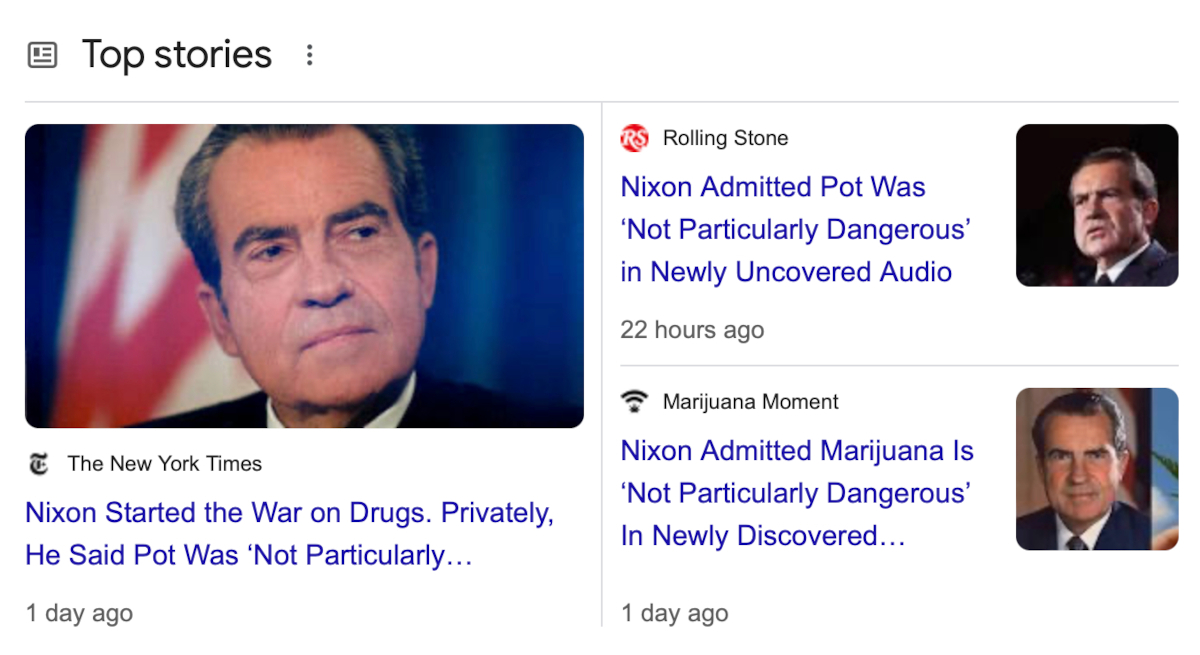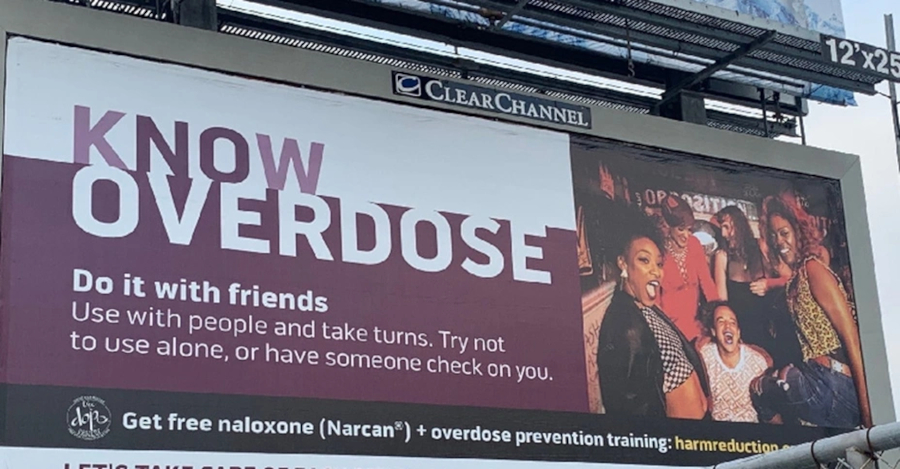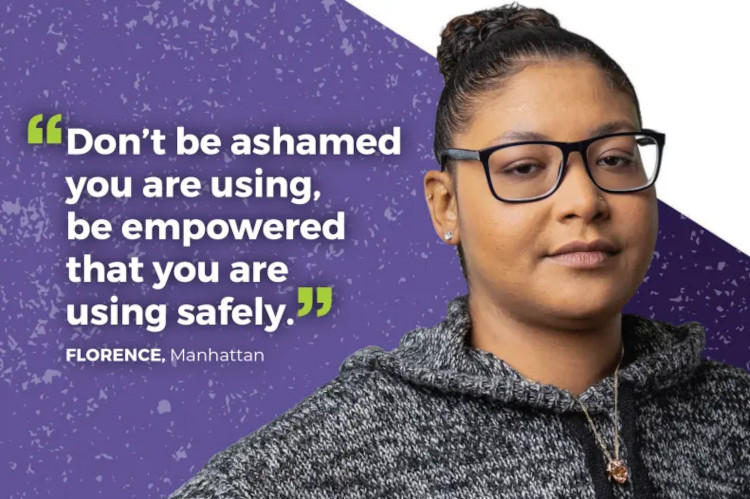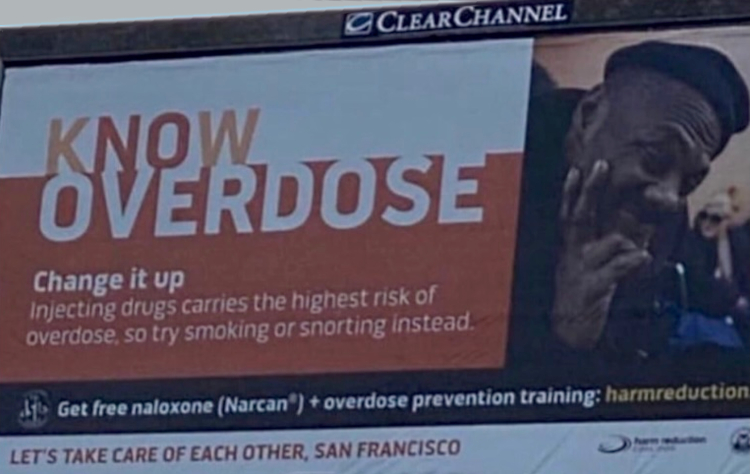I find it ironic, and sad, that one week after two major studies showing the significant health risks of smoking marijuana and the dangers of destigmatizing drug use disorders in general, Rolling Stone and the New York Times are instead focussed on old Richard Nixon audio tapes.

Richard Nixon – Not a doctor.
Cannabis Use Significantly Raises Cancer Risk
A September 5th, 2024, article by Naveed Salih, MD, MS, concludes that,
- “Smoking cannabis raises the risk of head and neck cancer, including oral, oropharyngeal, nasopharyngeal, salivary gland, and laryngeal cancers.”
Another study published August 08, 2024, to Niels Kokot, MD, a head and neck surgeon with the USC Head and Neck Center and senior author of the study,”Cannabis smoking is typically unfiltered and involves deeper inhalation compared to tobacco. Additionally, cannabis burns at a higher temperature than tobacco, increasing the risk of cancer-causing inflammation.”
These findings should not be surprising, because the association exists from tobacco as well. In fact, the parallels with tobacco use do not end there.
Early in the history of tobacco use, men in white coats, some of them actual doctors, would recommend smoking as a way to relax in magazines and on TV. It took decades for the destruction caused by tobacco to be researched and even longer to be released to the public. The same scenario is happening today with “alternates” like vaping and cannabis.
It takes decades for science to prove ill effects that take decades to develop. Since marijuana has been illegal and had no accepted medical use, research was unfunded and often forbidden. This is beginning to change, and as a result, the problems are being documented. Expect more data in the future associating cannabis use with other known tobacco issues such as heart disease, stroke, lung disease and other cancers such as lung, breast and stomach.
Cannabis Use is up and Rising

Destigmatizing San Francisco prodrug use billboards state, “Do it with friends. Use with people and take turns.” What happened to, “Do No Harm?”
A new study says daily marijuana use outpaces daily drinking in the United States. With the mainstreaming of pot use, and dispensaries in every community, in 2022 an estimated 44.3 million Americans smoke marijuana. Of those, 17.7 million smoke pot daily. On the other hand, 14.7 people million drink almost every day. Compared to 1992, when less than 1 million people said they used marijuana nearly every day.

The New York City public health billboard seen in subway states, “Don’t be ashamed you are using, be empowered that you are using safely.” The lack of a semicolon is not the only problem here.
Health Officials are Enabling More Drug Use
Health officials are to blame. Over the last decade, they have been pushing the narrative that destigmatizing drug use will lessen its harms. You may have seen some famous coastal examples like the “Know Overdose” billboards on San Francisco streets and New York City health department’s “Let’s Talk Fentanyl” subway campaign. Examples are shown throughout this paragraph.

This “Let’s take care of each other, San Francisco” billboard says. “Change it up. Injecting drugs carries the highest risk of overdose, so try smoking or snorting instead.” Not what I would call sound advice.
And their efforts are not just directed at the public. I was required to take ten hours of continuing medical education on drug use. While I was hoping to learn prevention and treatment techniques, it was instead hours of blaming doctors for stigmatizing drug use. As a result, I can no longer use the term “drug abuse.” Instead, I must substitute “drug use disorder.” Innocent babies born addicted to drugs are no longer suffering from withdrawal, instead it is termed “neonatal abstinence syndrome.” Like abstaining is the problem.
Oregon was all in on the language and outlawed all involuntary drug treatment and personal responsibility for drug addicts. As a result, drug use skyrocketed and the law was quietly allowed to experience. Lesson learned? Maybe we should include the history of the Opium Wars in our public school education.
What To Do?
The harms of drug use, including cannabis, are becoming clearer and clearer now that research is allowed, and yet we are being told to encourage positive use. To me it’s like encouraging drunk driving because most of the time they make it home or maybe just pass out harmlessly in their car, in a pool of vomit.
I can tell you that smoking marijuana is terrible for plastic surgery. Your risks of wound healing problems and infection are six times higher than someone who does not smoke or vape. Plus smoking causes wrinkles and accelerates aging. We knew this with tobacco. It is the same with cannabis. It is the same with vaping. We don’t know enough about edibles at this point in time to say it is safe. There is likely a lower risk of cancer without inhaling the smoke, but we don’t know for sure. More research is needed, and it should be encouraged.
With increasing use and documentation of increasing harm, it is time for a different plan. It is not time for puff pieces. Does anyone think Richard Nixon is a reliable source for medical information? Instead, see your doctor. If you don’t have one, get one. A routine yearly physical is likely to give you more piece of mind. If your doctor doesn’t use the perfect wording, it doesn’t mean they are wrong, or that they do not care about you. I’ll save that for the doctors and other health care providers who are encouraging risky, harmful behaviors. As far as smoking and surgery goes.
What to do Before Your Elective Surgery
It is recommended to stop all smoking and vaping a minimum of four weeks before and after surgery. The American Society of Plastic Surgeons advises stopping marijuana edibles and all CBD use for two weeks before and after surgery. These can interfere with anesthetic medications; however, on an individual basis, the anti-nausea effects of cannabis may be helpful. In any case, you should disclose all drug use, preservation, over-the-counter or otherwise to help reduce the risk to your health and get the best possible results.
If you are considering cosmetic plastic surgery in the San Francisco Bay Area, call (925) 943-6353 to schedule a private consultation appointment.
Previous Post Next Post